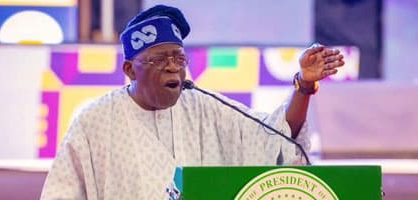Lagos, Nigeria – The Chairman of the Presidential Fiscal Policy and Tax Reforms Committee, Taiwo Oyedele, disclosed that the Federal Government is poised to save an estimated N8tn annually through the implementation of fuel subsidy removal and exchange rate unification policies.
During a panel session at the Lagos Chamber of Commerce and Industry’s 2024 Economic Outlook and Budget Analysis, Oyedele emphasized the importance of utilizing the substantial savings to alleviate the challenges faced by the average Nigerian.
Oyedele outlined the financial impact of the fuel subsidy removal and currency floatation, stating, “The Nigerian people made sacrifices as a result of the fuel subsidy removal by the government; that is N4tn savings a year. We did naira floatation. It is not perfect. We are also saving another N4tn. So we are having about roughly N8tn transferred from the private pockets of the people to the government.”
In urging the government to be intentional in spending this considerable amount, Oyedele emphasized the need to positively impact the citizens, particularly those experiencing multidimensional poverty. He urged transparency in tracking the expenditure of these funds.
The committee recommended the suspension of certain taxes deemed as “nuisance taxes” to ease the frustration faced by the public. Additionally, Oyedele stressed the urgency of creating digital opportunities for Nigeria’s youthful population, asserting that the technology sector could generate up to $20bn annually.
Addressing other recommendations, Oyedele highlighted the promotion of exports, including services and intellectual property, and the need for reforms in diaspora remittances. He called for amendments to laws to allow Nigerian companies to pay taxes in dollars, reducing pressure on the limited foreign currency supply.
The Director General of the Budget Office, Ben Akabueze, expressed concern about the country’s prolonged reliance on deficit budgets, resulting in a concerning debt profile. He emphasized the need to enhance public revenues, stating, “For over two decades, we have been running deficit in our budget. These deficits have accumulated. They have been funded through debt consistently.”
Akabueze dismissed calls for cutting expenditure, stating that Nigeria was not spending enough. He advocated for more efficient spending rather than reducing expenditure.
Bismarck Rewane, the CEO of Financial Derivatives, highlighted key economic challenges plaguing Nigeria, including non-inclusive growth, income inequality, high poverty and unemployment rates, inflation, fiscal imbalances, and currency pressures. He attributed the protracted forex crisis to factors such as lack of transparency, unclear policy direction, and high speculation and arbitrage activities.













